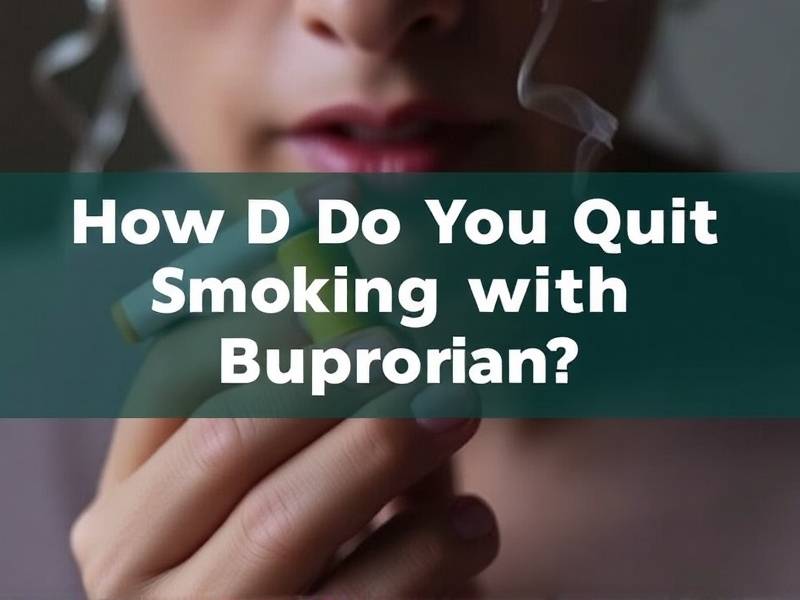How Do You Quit Smoking with Bupropion?
How Do You Quit Smoking with Bupropion?
Introduction: Smoking is a habit that affects millions of lives globally. The journey to quit smoking can be challenging, but with the right tools and support, it is achievable. One such tool is Bupropion, a medication known to aid in smoking cessation. This article will explore how Bupropion can help you quit smoking and what you should expect during the process.
What is Bupropion? Bupropion, also known as Zyban or Wellbutrin, is an antidepressant medication that has been approved by the FDA for smoking cessation. It works by affecting the levels of neurotransmitters in the brain that are associated with nicotine addiction.

How Does Bupropion Help You Quit Smoking?
-
Reducing Cravings: One of the primary ways Bupropion aids in quitting smoking is by reducing nicotine cravings. By altering neurotransmitter levels, it helps minimize the urge to smoke.

-
Alleviating Withdrawal Symptoms: Bupropion can also help alleviate withdrawal symptoms such as irritability, anxiety, and restlessness that occur when you stop smoking.
-
Enhancing Nicotine Replacement Therapy (NRT) Effectiveness: When combined with NRT like nicotine gum or patches, Bupropion can enhance its effectiveness in helping you quit smoking.
How to Use Bupropion for Smoking Cessation:
-
Consult Your Healthcare Provider: Before starting Bupropion, it's essential to consult your healthcare provider to ensure it's safe for you and determine the appropriate dosage.
-
Start with a Low Dose: Your healthcare provider may prescribe a low dose of Bupropion initially and gradually increase it over time based on your response.
-
Take as Directed: Follow your healthcare provider's instructions regarding when and how to take your medication. Be consistent with your dosing schedule to maximize its effectiveness.
-
Monitor Side Effects: Bupropion may cause side effects like dry mouth, insomnia, or headaches. If you experience severe side effects or have any concerns, contact your healthcare provider promptly.
-
Combine with Behavioral Support: For best results, consider combining Bupropion with behavioral support strategies such as counseling or joining a support group.
-
Stay Motivated: Quitting smoking requires patience and determination. Stay motivated by setting realistic goals and celebrating small victories along the way.
Conclusion: Bupropion can be an effective tool in your quest to quit smoking. By reducing cravings and alleviating withdrawal symptoms, it can make the process more manageable for many individuals. Consult your healthcare provider today to discuss whether Bupropion might be right for you on your journey towards a smoke-free life.
